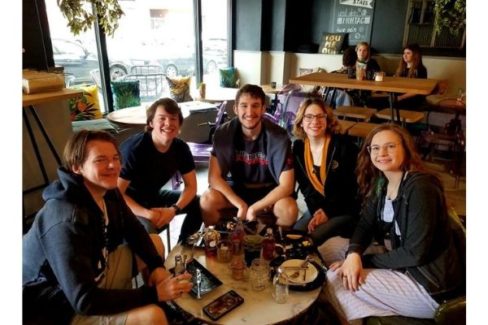Every other year, students are offered an opportunity to learn about the history and culture of Europe in the classroom and then travel to experience and expand that knowledge.
Professor of History Kelly McFall teaches the course Europe by Rail and then travels with students to Europe for the full experience. Each trip is stapled with visits to London and Vienna but the cities in between often differ according to each class’s interests.
This year, McFall and Associate Professor of Criminal Justice Jill Fort traveled with twelve students to London, Vienna, Krakow, Berlin and Copenhagen from May 13 to June 1.
We talked to 2019 graduate Hannah Russell and sophomore Daniel Knolla about their experience on the trip.
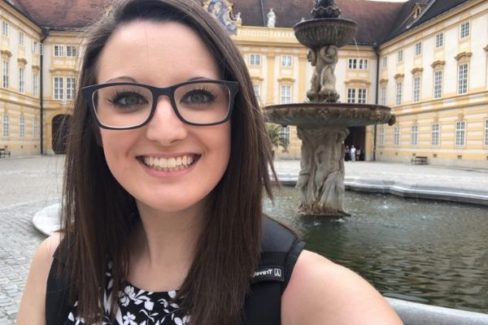
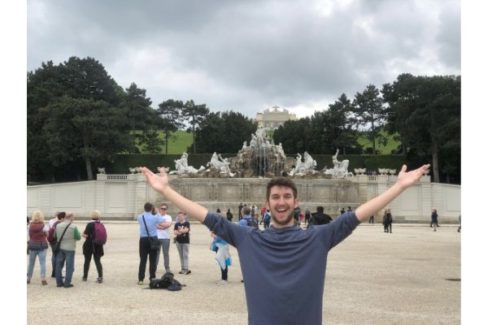
Q: Before you left, what were you most looking forward to?
Hannah: I was most looking forward to just exploring Europe. It’s something I had always wanted to do, and some of my cousins have gotten the chance to study abroad and they all loved it.
Daniel: Probably the allotted time to just explore the city, and it was probably the best time of the whole trip. That’s when I felt we were actually in a different place and not just going to museums.
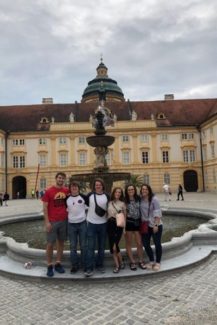
Q: How did the Europe by Rail course prepare you for the actual trip?
Hannah: We met weekly on Thursdays and learned what was going on in Europe, the history of the places we were going to and what to expect. When we visited the countries, we went to a lot of museums and talked about the history (both World Wars, the Holocaust, Brexit, etc.) of them so it definitely helped that we had gone over things in class prior. For example, one class period we talked about the Holocaust and during the trip, we went to a concentration camp. It allowed us to refresh our knowledge on the subjects before getting thrown into another county.
Q: What were some of the trips highlights?
Hannah:
- Finding a random free mini golf course in the middle of London. McFall, Fort and I all played this 12-hole course that was way more challenging than anything here in the U.S. It was so much fun. And how often do you get to say you played mini golf with two professors? By the way, I won.
- Visiting Auschwitz and Auschwitz II-Birkenau concentration camps in Krakow, Poland. It’s one thing to learn about the Holocaust and read about it in textbooks, but it’s a whole different feeling actually walking around Auschwitz. We were filled with nothing but grief and sadness as we walked in and out of the buildings, and saw where the gas chambers once were. It was one of the most powerful things I’ve ever experienced. I highly recommend visiting.
- Taking a canal tour in Copenhagen, Denmark. The tour started in the famous “Nyhavn” canal, which was known for the colorful buildings alongside the canal. For the next hour, we learned more about the city of Copenhagen, seeing things like the opera house, many different palaces and The Little Mermaid statue.
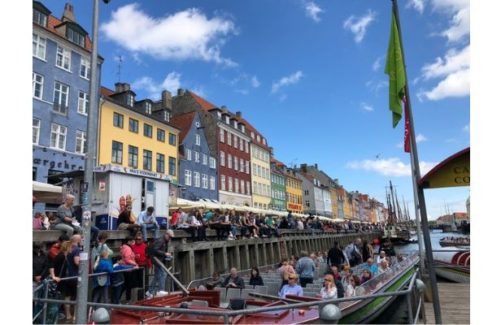
- Going to the Berlin Zoo & Aquarium. We had a free day in Berlin to do whatever we wanted, so a couple of us explored the zoo and aquarium. Berlin’s zoo is ranked in the top 10 in the world, so obviously, we had to go. While they didn’t have any lions or tigers, they did have an impressive panda exhibit and a huge monkey exhibit. We did all agree that Wichita has a better giraffe and elephant exhibit, though. The aquarium was also very impressive — it had three levels that were dedicated to different species.
- The best one? Finding out that THE Kelly McFall had his first burrito ever in Copenhagen, Denmark. Probably not the best one, but at least it was memorable?
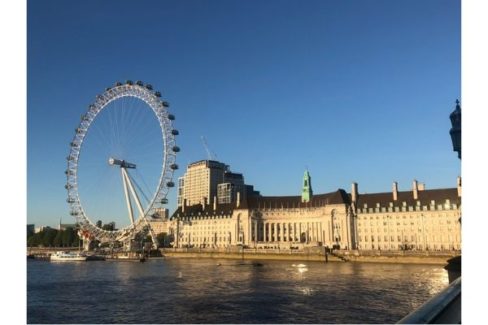
Daniel: Two of my favorite things that happened were; one, I found a blacksmith at a market in Poland, and, of course, I bought a war hammer, and two, Denmark was absolutely breathtaking. I remember eating ice cream on the dock watching jellyfish swim by while listening to a street performing band. Amazing.
Q: How much responsibility were you given as a student on this trip as far as choosing your activities and navigating?
Hannah: We were given a lot of responsibility. The majority of the time we were allowed to pick our own places for lunch and dinner, with the exception of the days we had group meals. Some days we had free time and could explore the cities ourselves and navigate the subway systems, which allowed us to be more independent.
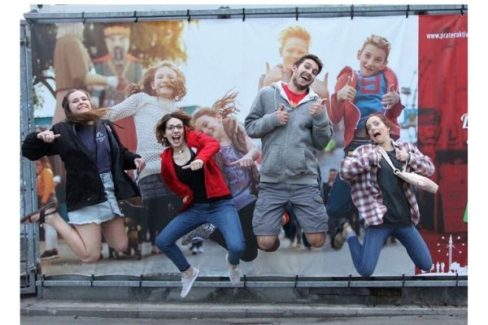
We were also given a ‘final exam’ before we got to Copenhagen, which consisted of us splitting up into two groups and planning a full day of group activities for Thursday and half a day of activities on Friday. We had a certain budget and timeframe to follow. This was different because most days McFall and Fort told us what we were going to do or see, and we followed them. This allowed us to choose what we wanted to see and explore while in Copenhagen.
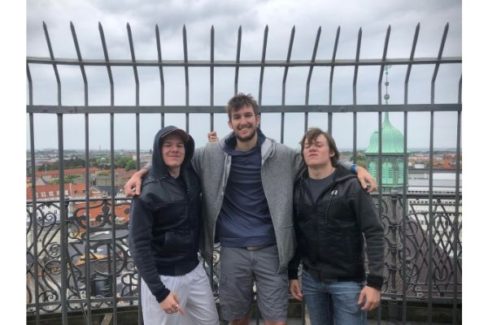
Q: McFall has been known to purposely ‘lose’ students on this trip in order to make them better travelers — did this happen and how did you cope?
Hannah: There were a couple of times this did happen. Each day we would have a ‘leader’ who would navigate the group to where we were supposed to go. All we had was a map in our hands, the complex subway system and lots of signs — mostly in different languages.
When we first got to Berlin, McFall immediately picked someone to lead us to our hostel. It took us probably two hours to get there. Finding the right subway(s) to ride — thankfully a local told us we were on the wrong one at one point — what stop to get off and finding where our hostel was. To make things even more complex, everything was in German. Definitely stressful but it was a group effort by the end of the night.
After visiting the Zoo and Aquarium in Berlin, we thought we could make things easier and use the ‘transit’ option on Apple Maps. It told us how to get back to our hostel and what subways to take, along with the stops. Pretty simple, right? Well not quite … I’m not sure where Apple Maps was going to take us, but probably to the other side of Berlin. We then learned to not rely on technology, and stick to the maps on paper.
Another time this happened was in Vienna. Myself and two others were walking behind McFall and some of the group and eventually lost them in the middle of the city. We had to navigate on our own to where we wanted to go and relied on the map we had. It was a little terrifying at first, but we made it just fine.
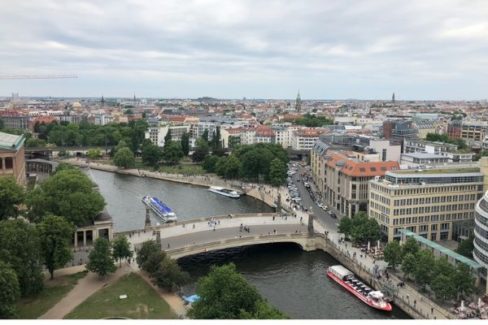
Q: Traveling from city to city was done by rail rather than air — what was that experience like?
Daniel: I definitely liked traveling by rail just because you get to see the places you’re going through. I feel like when you travel on a plane you miss half the journey because it’s blocked by the clouds.
Q: What were some things you gained or learned from this trip?
Hannah:
- I learned a new sense of independence. I was in foreign countries with a lot of people I didn’t know very well. Sure I knew some students on the trip, but I was the one who chose where I wanted to eat, where I wanted to spend my free time and how I would get around places. It’s totally different when you’re in a new environment.
- Most bathrooms are not free in Europe; water isn’t either.
- Some foods are really good; some are not.
- Gelato is always acceptable to eat for lunch or dinner in Europe.
- Subways are hard to navigate at first but get easier as time goes on.
- Paper maps are better than technology.
- Embrace getting lost and not knowing directions. At the end of the day, it will be an experience that you may not get again.
- I learned that I could pretty much be a pro traveler after lugging a suitcase and backpack around Europe.
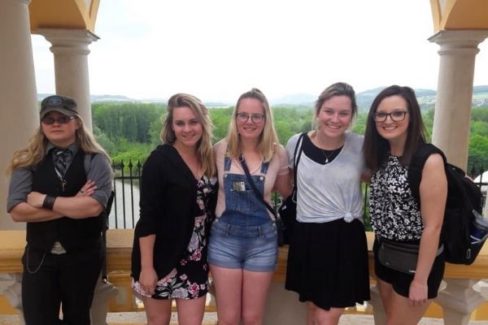
Daniel: I learned how to read maps regardless of the language, which is definitely going to come in handy when I travel anywhere in the world where English isn’t the first language. I also learned a lot about myself, because there is a lot of stress on the trip, and I learned how to handle this stress and anxiety a bit better through patience and understanding.
Q: What advice would you give to anyone considering this particular trip or travel abroad through Newman in general?
Hannah:
- Ask questions. Lots of them. Learn as much as you can from the people around you — including the ones that live there. And see every possible thing you can.
- Learn a couple of the basic words in each language, like “hello,” “bathroom,” and “thank you.” It will pay off.
- You definitely have to learn to go with the flow; you will be out of your comfort zone and in new places, but all you can do is soak it up and learn from it.
- Don’t have expectations going into it. They will probably end up completely different. I loved some places more than I had expected or disliked ones that I thought I would really like.
- Make sure to do your own research on the places you are going to be traveling. Research what there is to see, do and eat. You will have a good amount of free time and knowing what you want to see and do will be very helpful.
Daniel: You could definitely do this trip on a tight budget. The $3,500 price tag, for this kind of trip, is a steal in itself.
